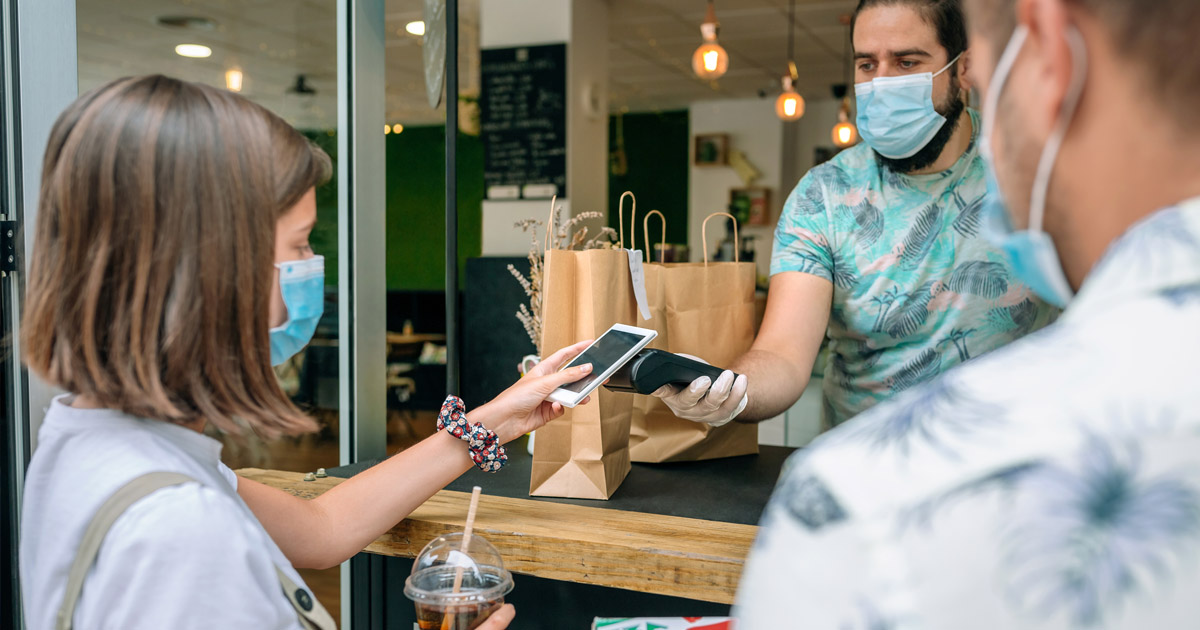Black Friday is notoriously known as the kick-off to holiday shopping. Shoppers line up at sunrise the Friday after Thanksgiving, anticipating the thrill of a bargain. Some stores even offer deals on Thanksgiving night. We’ve seen videos of–and maybe even experienced–the hectic crowds on this day, but with COVID-19 cases rising in every state in the US, how will retail businesses fare this year, and what are they doing differently to mitigate the potential decrease in in-store sales?
To find out, it only made sense to speak with Kogod marketing professor Ben Wright. Wright researches the ways businesses use social media and other digital assets to achieve marketing-driven organizational goals. He is currently examining the interaction of consumer personality and response to branded messages on social media. With everything shifting to a larger online presence in response to COVID-19, the logic persists that retailers will rely heavily on their digital presence to advertise and sell their Black Friday deals this year
“Companies are investing a lot of time and money into optimizing their online websites, advertisements, and product displays. The marketing is more focused on a seamless experience online,” says Wright. “This means that we, as consumers, have been seeing online Black Friday deals for the past couple of weeks.”
Retailers are emphasizing online shopping to keep their in-person Black Friday craze to a minimum this year. “It’s a mistake if stores are only having their sales and promotional deals in person on one day, considering all of the hoops consumers are forced to go through this year,” says Wright. “We are seeing a premium on online marketing efforts, such as paid search ads, search engine optimization, and targeted social media ads.
“Another strategy most of the larger stores are using is price-matching. This is not a new strategy, but we are seeing it mentioned more, likely because the consumers shopping online are already skilled in finding the best deals. For those who do not jump from website to website, these promotions provide a level of trust with the brand that they are getting the best price possible.”
Many retailers are struggling to keep the lights on, and holiday shopping may be a life raft if they market themselves well. However, retail giants have monopolized the online shopping world, becoming richer and more powerful during the pandemic. These companies are not likely to shorten their reach anytime soon.
“Amazon moved its massive sales event, Prime Day, from July to October this year, so it was already coming up on the holiday season, and other large retailers have taken note,” says Wright. “Small and mid-sized companies are unlikely to compete with Amazon’s product selection, price, or distribution logistics. However, they can provide a more personalized approach by diving into the data they have about their customers.”
Stores can use shoppers' data to attract more sales by appealing to repeat customers using Facebook’s custom audiences. Offering last-minute holiday coupon codes and emailing reminders are also ways for small to mid-sized businesses to stand out.
“The local designer clothing store, for example, will have to work on beefing up its shipping capacities and heavily investing in e-commerce infrastructures to succeed this holiday season,” adds Wright.
More prominent businesses that already have a social media following find that going against the norm can really work. “REI has a great ‘anti-Black Friday’ campaign that started in 2015 called #OptOutside,” says Wright. “They encourage customers to go outside on Black Friday. In fact, REI does not open their physical stores that day.”
The success of this campaign highlights the power of brand sincerity. REI saw a 23 percent uptick in digital sales in the first year of the promotion and has continued it ever since.
However, since the emergence of the internet and online shopping, brands and retailers haven’t had to navigate a pandemic. “There is no recipe for success in these trying times,” says Wright.
A completely out-of-the-box solution may prove to be the right choice, as it did for REI. However, there are no guarantees that attempting something new will work.
“We’re seeing a lot of companies thrive toward the end of 2020, and it’s mostly attributed to their dedication to getting better at learning about their customers,” explains Wright. “It’s obvious that most of us want to be able to shop online in a secure and safe environment, but many of us do not want the impersonal experience that we see on a lot of the larger retail websites. Instead, trying to include a customizable and personalized experience gives companies of all sizes a great opportunity to move on from 2020 with knowledge and more efficient ways to satisfy their customers.”
Stay safe this year by opting to shop online, and when you do, think about who the retailer is and how far your purchase will go toward supporting a business that might be in your neighborhood.
